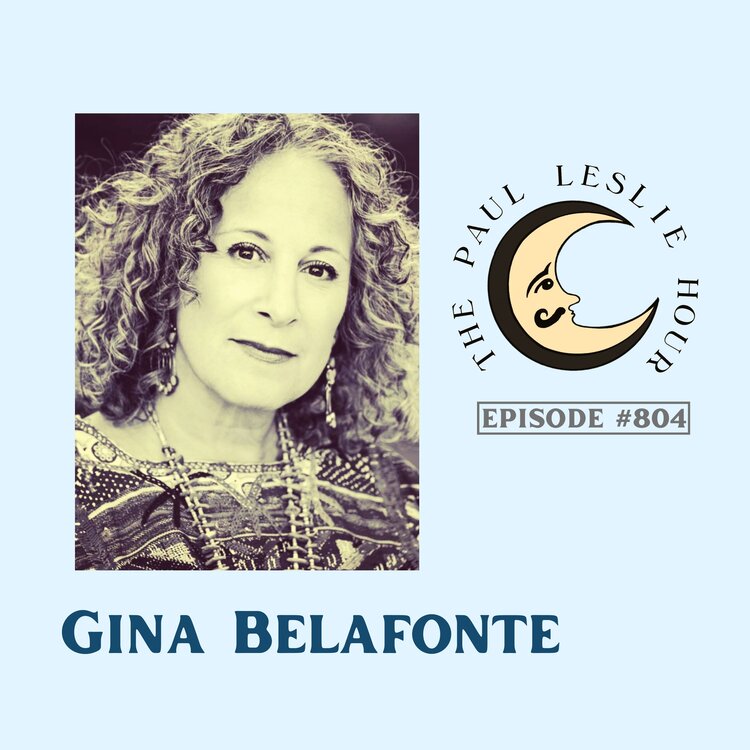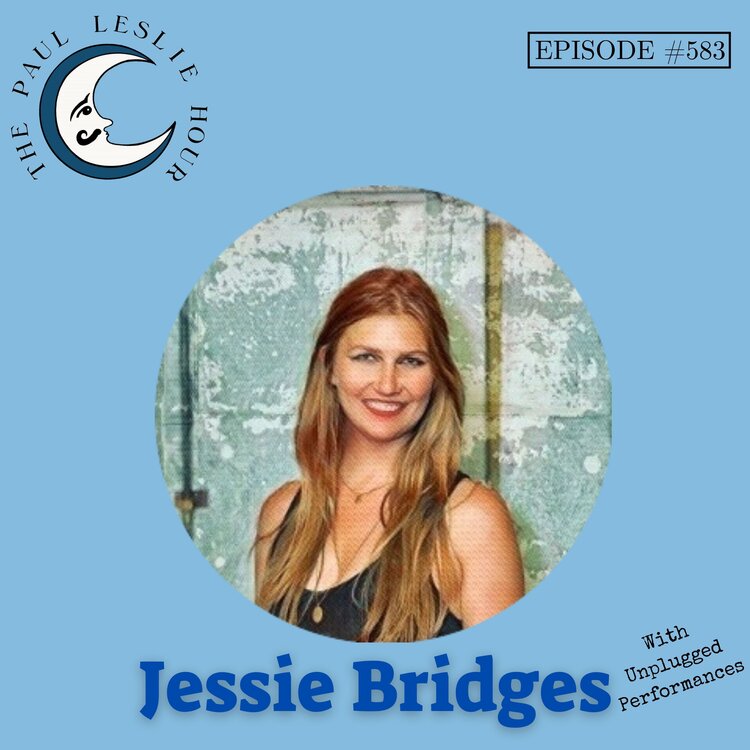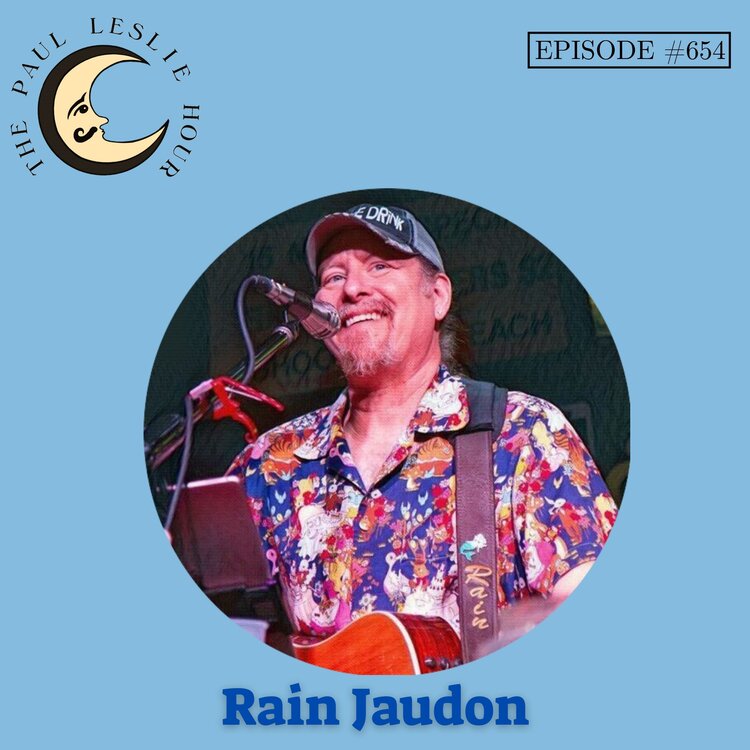The Gina Belafonte Interview is featured on The Paul Leslie Hour.
Are you here? If you’re here, it’s pretty important that you realize and completely understand that you’re listening to The Paul Leslie Hour. We all on the same page here?
We’ve got an interview from the archives with Gina Belafonte. This is a short interview, but we like to think it makes a big impact.
Gina Belafonte is the producer of the documentary film SING YOUR SONG, which was directed by Susanne Rostock. The film tells the untold story of singer, actor and activist Harry Belafonte (that’s Gina’s father). In the short chat you’re about to hear, Gina Belafonte tells us about the making of the film and what inspired it.
Gina Belafonte was born and raised in New York City. Her background is in entertainment and activism, something she has in common with her father Harry Belafonte. Did you know he was just inducted into the Rock and Roll Hall of Fame, and at 95 years of age no less?
Harry Belafonte is known around the world for popularizing songs like Day-O, Jamaica Farewell, Jump in the Line, Matilda and many others as well as his acting and activism.
Now, here’s something we really need help with. It only takes a few seconds and it’s totally free. Go on Paul Leslie’s YouTube channel. Would you hit subscribe? It’s free to do so. Only takes a moment and puts us in good shape as we try to double our number of subscribers. That’s the goal before hitting the 20 year mark.
Now if you have a couple bucks you’d like to contribute to the cause, why that’d be nice and dandy too. Just go right here. And we thank you. We really do.
And now, let’s hear this interview with Miss Gina Belafonte.
Help Support the Show Here.
Subscribe/stream on the following platforms:
• Rumble • RadioPublic • Stitcher • Apple •
• Spotify • Player FM • iHEARTRadio •
Consider sharing this interview on Social Media.
The Official Transcript
Ladies and gentlemen, it’s our pleasure to welcome our special guest, Gina Belafonte. Thank you so much for joining us.
My pleasure. Thank you for having me.
The film is Sing Your Song and you’re the producer of it. Tell us about how the idea for this film originated.
I had, uh, certain questions of my own in terms of my father’s participation in the civil rights movement as I witnessed him having events and the absence from my earlier years. My daughter was turning seven and my brother was about to have his first child, and I also thought that they would never have an opportunity to know the depth of his participation. So that culminated in me asking him if he would embark upon a journey to document his life. After I saw a documentary on the life of Gregory Peck that was done by his daughter, who was a friend of mine that I was inspired by, I asked him. And I think, for him, he was beginning to lose certain friends of his to old age and felt that their stories would potentially die with them if there wasn’t someone who was mentioning them and documenting them a bit. He wanted to do that in our film and so we embarked on the journey together about seven years ago.
Is there a part in the film Sing Your Song that is a favorite part of the film?
That’s an interesting question. There’s many parts of the film that I love. I love the whole film (laughs) so much, of course but I love the early footage of his shows that he produced. I find them to be very forward-thinking and interesting, culturally, for the American television repertoire which we don’t really have nowadays on television. Such interesting shows like the ones that he produced that I think were inspiring for shows like Laugh In and other comedy shows or other variety shows. I think a moment that was most chilling or surprising to me was when he interviewed Martin Luther King on The Tonight Show and asked him if he feared for his life. That was a very strong moment for me. But all of it, I love all of it. You know, I’m a big fan of my dad’s so watching him perform is a great honor for me, especially because he doesn’t do it anymore. So to be able to see some of that old footage is quite wonderful.
Was there anything in the film through the process of creating it that was a surprise to you, that you didn’t know?
I knew that my father gave money to the movement all the time and often. I didn’t know the proximity to him going down to Mississippi to give that money so soon after Schwerner, Goodman and Chaney had been murdered. I also, strangely enough, didn’t realize even though it’s obviously documented – I had no recollection that Robert F. Kennedy’s assassination was so soon after Martin Luther King’s so that was kind of an interesting observation. We had close to 800 hours and there’s probably a good 700-and-some of the hours that I’m not in the film so there were surprises all along the journey in making it, and so no one thing stands out so much to me at this moment because every time I watch I find something new. Even though I made it and I watched edit after edit after edit after edit, I get new revelations every time I see it.
What has been the reaction from people who have seen this film, Sing Your Song?
The reaction has been overwhelmingly consistent internationally, which has been a real wonderful gift for us and what we had hoped that people would walk away from the film with, which is – the question, in fact, that my father asks at the end of it which is ‘What do you do now?’ And also, I think that it inspires an inner activism within us all, and a desire to contribute more and give back more to our communities in different ways that we can. I think also, everyone has requested us to make sure that we find a way in which we can get the film out to as many people as possible and especially to the youth of today, to young people so they get an opportunity to see it. And for it travel to schools and to create teaching curriculums around it. So that is something that we’re looking into and putting a concerted effort into trying to create. But it’s been a very positive, positive, positive reaction and that’s great. And many people have been requesting that we find ways in which to show it to the people who are occupying Wall Street. I was just in Canada with the film, in Vancouver where they’re beginning to occupy Vancouver and they were also requesting ways in which that we could bring the film to people who are just sort of sitting out in protest, in the open air.
Tell us about The Gathering for Justice.
The Gathering for Justice was inspired by my father after witnessing horrific footage of a five-year old young child in Florida, but a child of color, who was being arrested by five white police officers from her school under the condition of her being unruly, I think, was her charge. And my father was very disturbed by this footage. And so he created a gathering of elders of the civil rights movement and of high-profile in government to ask the question how have we come to this – that the first line of defense for a school is the police and not a social worker or a nurse, or the patience to wait for the parent to actually be able and have the opportunity to arrive? And after he had the meeting of the elders and saw that many of them were really quite tired, he thought a gathering of youth would be most appropriate. With some help from the Burns Institute and some folks from the Institute of Policy Studies, we gathered youth organizers in Epps, Alabama and we had representation from, in general, the black community, the Latino community, Asian community, white community and indigenous community. And at this gathering we formed a group called The Gathering for Justice. It was often questioned to my father, it was asked “What’s the agenda?’ and he put that back to us and said that the agenda for us was, really, to find the agenda. We don’t all know each other and we have to talk amongst each other to see what each other’s needs are and how we can support each other in moving forward around the specific issue of youth incarceration and gang intervention. We formed the organization and that was seven years ago. We had quite a lot of mobilization and a presence in different places but we traveled from community to community and the thing that bonded most of us, aside from the issue of incarceration and gang intervention, was poverty. And so most of the communities that we’ve gone into have been poor communities, and all different racial communities and cultural communities. But we’ve sat in council with one another and we’ve created bridges between the elders and theyouth around the issue of incarceration, and youth incarceration in particular. And we’ve traveled to prisons and we’ve traveled to neighborhoods. And we do non-violent direct action trainings as well as help organizations on the ground in whatever mobilizations they’re trying to create. We give them support and organizing strategies to model.
My final question. For anybody who listens to this interview, wherever they are and whenever they hear it, what would you like to say to all of the listeners?
I would like to say that I hope they have an opportunity to see Sing Your Song, the film. I hope they have an opportunity to read the book, My Song, that my father just finished writing. I hope they listen to a lot of really good music to keep smiles on their faces and in their hearts. And I hope they take a good hard look at themselves in the mirror, when they feel that they can, and make some strong decisions about how they feel they can give back to their communities and what their personal capacity is. And to do it – because unless we help each other, the world’s going to be fraught with violence. We need to support one another in creating healthy communities.
Miss Belafonte, thank you very much for this interview.
Thank you so much for having me.
It’s a pleasure.


